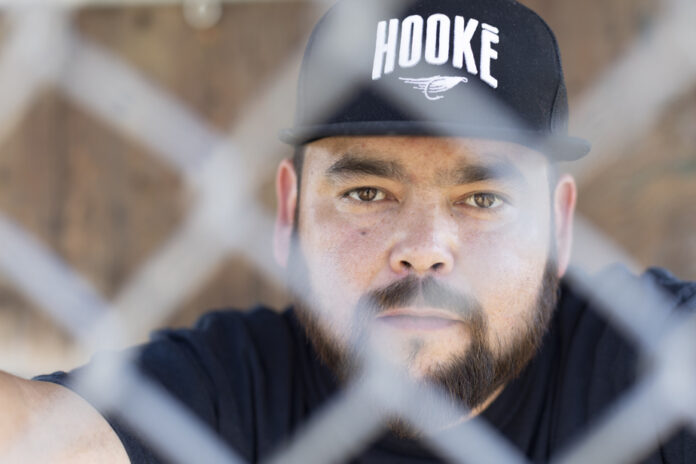It must have been something like around the fall of 1991. We lived in Quebec, in the Huron village, my mother and me. A small three and a half on Nicholas-Vincent Street, just at the flashing red light. We were studying there. My mom in college and I in kindergarten. She told me that one day I came home from school crying.
At home, people spoke quite a bit just in Innu. So when I got there, I surely felt like I was landing somewhere else. Imagine the feeling: it’s dinner time, you try to ask for a fork or a spoon to eat, and the lady looks at you with wide eyes, like, “What is he saying? “Ayoye! I don’t remember, but I know that from there, Mom decided to make an effort on French. Otherwise, his poor ti-guy would eat with his fingers all the time at school.
The saddest thing about it is that I ended up losing my tongue.
But that story is over 30 years old. At the time, the Innu language was not yet really in danger. In any case, not as much as it is today.
Lucky are the communities where people still manage to speak Innu-aimun in their homes. But in communities that are close to cities, like Maliotenam, stuck on Sept-Îles, it is more difficult. Especially since iPads, iPhones, tablets and all the rest, it doesn’t help. Of course, there will always be books to teach the language and computers to save it. But the language spoken daily in our homes, in our families, is bad! Our elders are the last generation to have seen and experienced the traditional way of life. Walk to eat. Speak the language of the territory.
When I was little and went to play with friends, I was the only one who spoke French. Parents still spoke to their children in Innu. Today, if a kid can count to 10 in Innu, it’s already no worse. I say that, and I’m not even sure I can.
I tried a few times growing up to express myself in Innu. But when you’re in high school, during the break with your circle of friends, and there, it’s gossiping… You take your courage in both hands, you try yourself and you say to yourself internally: “Okay, OK, I’m going answer in Innu. You dare, and then you make people laugh at you. It makes me less inclined to try again.
Today, it wouldn’t be like that. Today, we applaud those who try and encourage them to continue.
At least I’ve always understood Innu because I was often taken care of by Mémère and Pépère Johnny, who always spoke it. They spoke to me in Innu and I answered them in French. Pépère Johnny spoke a bit of French because he had worked for the Iron Ore Company (IOC) for several years. And also because he was listening to La soiree du hockey. It means that I understand Innu despite everything, even if in my head, it happens in French. When I want to express myself in Innu, I have to do a mental translation. It’s a little more complicated than for someone who thinks in Innu.
But what could we do to encourage and motivate our children to speak Innu? I know that it essentially comes from us, the parents, who should force ourselves every day at home to communicate in Innu. But since I’m already catching up, it’s not easy. My daughter goes to Tshishteshinu school in Maliotenam. She is in fourth grade. In a community school, students are expected to at least learn more about their culture and language than elsewhere. True, but not that much. On a seven-day cycle, she has a period or two of innu-aimun. An hour or two a week is not enough.
How to help the tongue, then? I do not have the answer. Luckily for me, there was music. Listening to Kashtin, Philippe Mckenzie, Bernard Fontaine and company, singing with them, I learned. I was able to reclaim my language and be proud of it.
Makes it a pretty cool moove to ask for a 5% quota of Indigenous music on commercial radio. It is even important. It can’t hurt. It can only help, and do good.
At worst, we all slap Post-its on our foreheads with, written on them: “Innu-aimi ma!” »


















